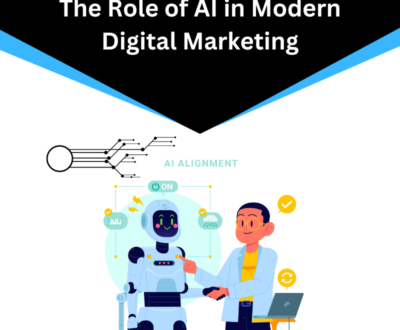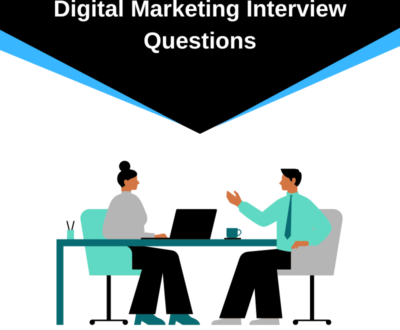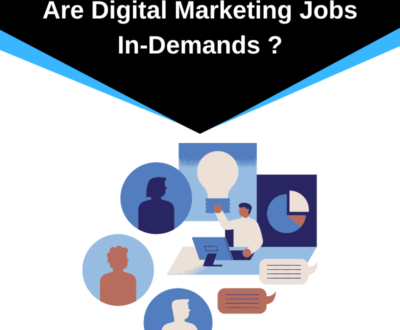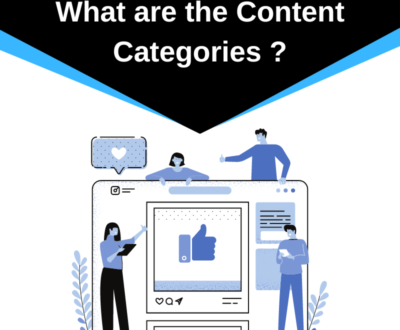
Learn Digital Marketing in a concise yet comprehensive manner involves understanding core concepts, gaining practical experience, and leveraging various resources. Here’s a structured guide to help you learn Digital Marketing effectively:
1. Understand the Fundamentals
Digital marketing encompasses various strategies and tools used to promote products or services online. Key areas include:
- Search Engine Optimization (SEO): Enhancing website visibility in search engine results to drive organic traffic. Key elements include keyword research, on-page optimization, technical SEO, and link building.
- Content Marketing: Creating and distributing valuable, relevant content to attract and engage a target audience. This includes blog posts, videos, infographics, and eBooks.
- Social Media Marketing: Using platforms like Facebook, Instagram, LinkedIn, and Twitter to build brand awareness, engage with audiences, and drive traffic.
- Pay-Per-Click (PPC) Advertising: Running paid ads on platforms such as Google Ads or Facebook Ads. Advertisers pay each time their ad is clicked.
- Email Marketing: Sending targeted emails to nurture leads, build relationships, and drive conversions.
- Analytics: Measuring and analysing data to assess the effectiveness of marketing efforts. Tools like Google Analytics are crucial for tracking performance.
2. Enrol in Online Courses
Free Courses:
- Google Digital Garage: Offers a comprehensive “Fundamentals of Digital Marketing” course covering essential areas.
- HubSpot Academy: Provides free courses on inbound marketing, content marketing, and social media.
Paid Courses:
- Udemy: Features various digital marketing courses, including SEO, content marketing, and social media strategies.
- Coursera: Offers courses from universities such as the University of Illinois, including digital marketing specialisations.
- LinkedIn Learning: Provides tutorials and courses on various aspects of digital marketing.
3. Read Books and Follow Blogs
Books:
- “Digital Marketing for Dummies” by Ryan Deiss and “Building a StoryBrand” by Donald Miller offer practical insights into digital marketing strategies and principles.
Blogs:
- Neil Patel: Provides actionable tips and strategies for SEO, content marketing, and more.
- Moz Blog: Focuses on SEO and search marketing insights.
- Content Marketing Institute: Offers research, strategies, and best practices for content marketing.
4. Practice Hands-On Skills
Create a Website: Build your own site using platforms like WordPress or Wix. Implement SEO strategies, create and publish content, and use analytics to track performance. Master The Four C’s of Marketing
Manage Social Media: Set up profiles on platforms such as Facebook, Instagram, and LinkedIn. Experiment with different types of posts, engagement tactics, and advertising options.
Run PPC Campaigns: Use Google Ads or Facebook Ads to create and manage paid advertising campaigns. Experiment with different ad formats, targeting options, and budgets.
5. Use Digital Marketing Tools
Analytics Tools: Learn Google Analytics to track website traffic, user behaviour, and campaign performance. Understanding metrics like bounce rate, conversion rate, and user demographics is essential.
SEO Tools: Familiarise yourself with tools like Moz, Ahrefs, or SEMrush for keyword research, competitive analysis, and backlink monitoring.
Email Marketing Platforms: Use tools like Mailchimp, Constant Contact, or Sendinblue to create and manage email campaigns, segment audiences, and analyse campaign performance.
6. Gain Practical Experience
Internships: Seek internships with companies or digital marketing agencies to gain hands-on experience and learn from professionals.
Freelancing: Offer digital marketing services on platforms like Upwork or Fiverr. This allows you to work on real projects, build a portfolio, and gain practical insights.
Volunteering: Help local businesses or nonprofits with their digital marketing efforts. This not only provides valuable experience but also helps build a portfolio of work.
7. Obtain Certifications
Certifications can validate your skills and enhance your credibility:
- Google Ads Certification: Demonstrates proficiency in Google Ads and PPC advertising.
- Google Analytics Certification: Shows expertise in using Google Analytics for data analysis and reporting.
- HubSpot Content Marketing Certification: Validates your skills in creating and managing content marketing strategies.
8. Stay Updated and Network
Industry Groups: Join forums, LinkedIn groups, and online communities related to digital marketing. Engaging with peers and professionals can provide valuable insights and support.
Webinars and Conferences: Attend digital marketing webinars, workshops, and conferences to learn about the latest trends, strategies, and tools from industry experts.
9. Analyse and Iterate
Track Performance: Regularly review the performance of your marketing campaigns and strategies using analytics tools. Identify what works and what doesn’t.
Optimise Strategies: Based on your analysis, make data-driven adjustments to improve your marketing efforts. This may include refining your SEO tactics, modifying content strategies, or adjusting PPC budgets.
Summary
To learn Digital Marketing effectively, start by understanding core concepts and strategies. Enroll in online courses to build foundational knowledge, and use books and blogs to stay informed. Practice hands-on by creating your own website, managing social media, and running PPC campaigns. Utilize digital marketing tools for analytics, SEO, and email marketing. Gain practical experience through internships, freelancing, or volunteering. Obtain certifications to validate your skills and stay updated by networking and attending industry events. Continuously analyze and optimize your efforts to improve your digital marketing skills.
By following this structured approach, you’ll develop a comprehensive understanding of digital marketing and be well-equipped to apply your knowledge effectively.
More from our blog
See all postsRecent Posts
- On-Page SEO: A Comprehensive Guide October 14, 2024
- The Role of AI in Modern Digital Marketing October 10, 2024
- The Four C’s of Digital Marketing. September 11, 2024









Pingback: What is Digital Marketing ? - Jeet Shekhawat